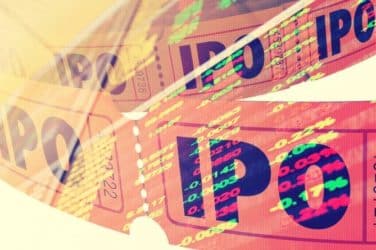R3 Tackles Trade Financing Challenges with Distributed Ledger Technology
08.11.2016R3.com – New York/San Francisco/London) – Financial innovation company R3 and over 15 of its consortium member banks have successfully completed two prototypes that demonstrate how distributed ledger technology can address the key challenges facing the USD 45bn global[1] trade finance industry.
The banks designed and utilised self-executing transaction agreements, known as smart contracts, on R3’s Corda distributed ledger platform to process accounts receivable (AR) purchase transactions, also known as invoice financing or factoring, and letter of credit (LOC) transactions. Both AR and LOC transactions are widely used methods of trade financing in global financial markets.
Traditional processes surrounding trade finance are largely paper-based and are therefore time consuming and prone to risk and fraud. Trade finance is a significant source of revenue for banks, but its once crucial role in facilitating international trade has been undermined by these inefficiencies. It has come under further threat as buyers and sellers have become able to communicate more easily and access an abundance of information and data about each other, providing greater legal certainty.
R3’s prototypes validate distributed and shared ledger technology as a digital alternative for trade financing that is significantly faster, more reliable and cost-effective. Estimates suggest that such technology has the scope to reduce operational and compliance costs of paper-based trade financing by 10 to 15% and provide a platform for banks to grow revenues by as much as 15%.[2]
Distributed ledger technology’s ability to provide a single, immutable record of a trade, verified by all parties involved in a transaction provides a number of clear benefits for trade financing. These include a reduction in fraud risk, whereby a seller may submit the same AR invoice to a bank more than once, and removal of time-consuming reconciliation processes, which occur when a buyer’s payment information is not accompanied with the necessary data for banks to reconcile a payment with the relevant invoice.
David Rutter, CEO of R3, comments: “Trade financing is a crucial income stream for banks and provides an integral role in enabling businesses in different countries to trade with each other with certainty and peace of mind. However, the processes used to facilitate trade financing have become antiquated and unfit for purpose in today’s increasingly digital world. These trials have proved that the blockchain-inspired technology used on our Corda platform holds the key to transforming trade financing for modern financial markets.”
Over 15 R3 consortium members were involved in the trials including Barclays, BBVA, BNP Paribas, Commonwealth Bank of Australia, Danske Bank, ING Bank, Intesa Sanpaolo, Natixis, Nordea, Scotiabank, UBS, UniCredit, U.S. Bank and Wells Fargo.





